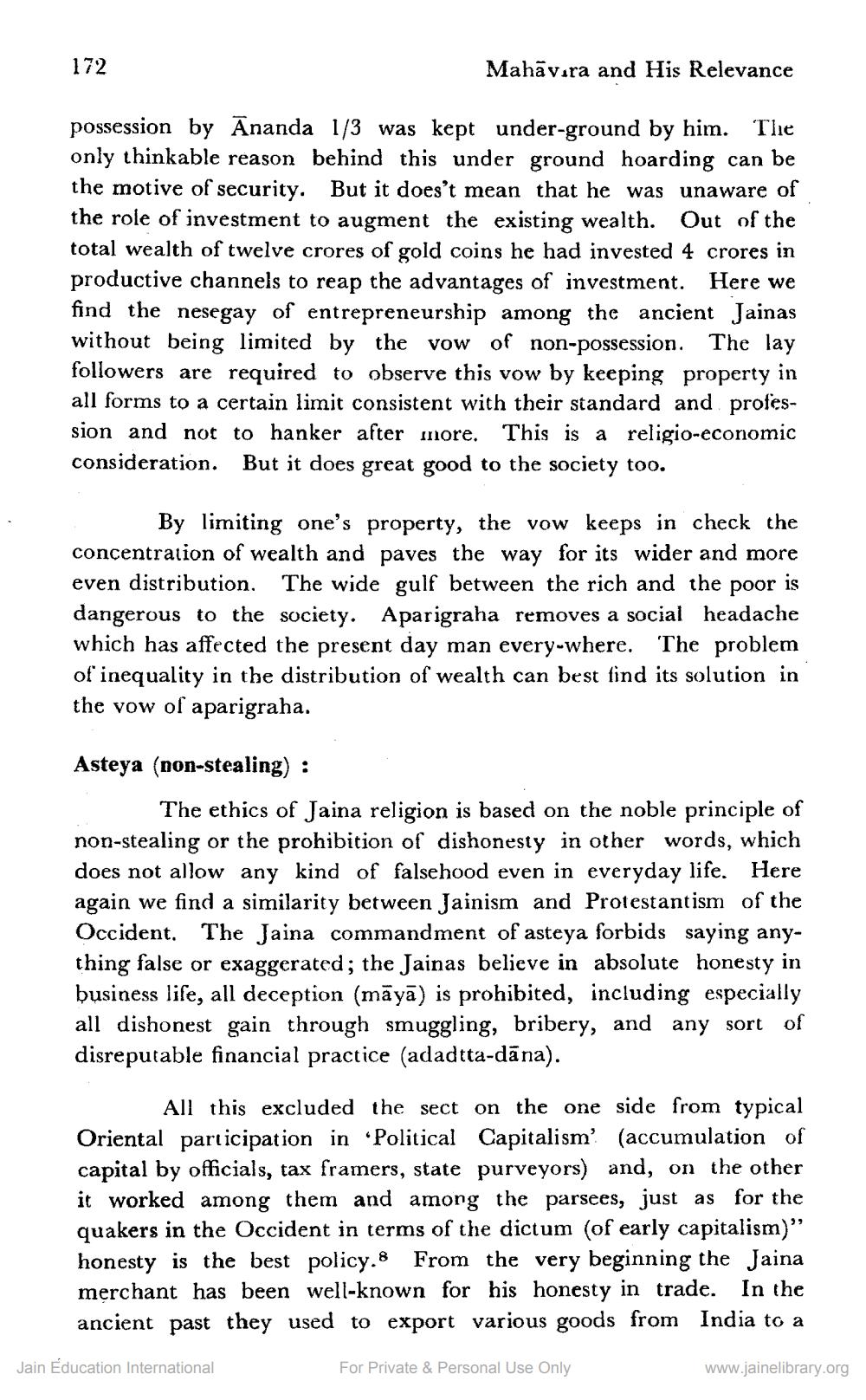________________
172
Mahāvıra and His Relevance
possession by Ananda 1/3 was kept under-ground by him. The only thinkable reason behind this under ground hoarding can be the motive of security. But it does't mean that he was unaware of the role of investment to augment the existing wealth. Out of the total wealth of twelve crores of gold coins he had invested 4 crores in productive channels to reap the advantages of investment. Here we find the nesegay of entrepreneurship among the ancient Jainas without being limited by the vow of non-possession. The lay followers are required to observe this vow by keeping property in all forms to a certain limit consistent with their standard and profession and not to hanker after more. This is a religio-economic consideration. But it does great good to the society too.
By limiting one's property, the vow keeps in check the concentration of wealth and paves the way for its wider and more even distribution. The wide gulf between the rich and the poor is dangerous to the society. Aparigraha removes a social headache which has affected the present day man every-where. The problem of inequality in the distribution of wealth can best find its solution in the vow of aparigraha.
Asteya (non-stealing) :
The ethics of Jaina religion is based on the noble principle of non-stealing or the prohibition of dishonesty in other words, which does not allow any kind of falsehood even in everyday life. Here again we find a similarity between Jainism and Protestantism of the Occident. The Jaina commandment of asteya forbids saying anything false or exaggerated; the Jainas believe in absolute honesty in business life, all deception (māyā) is prohibited, including especially all dishonest gain through smuggling, bribery, and any sort of disreputable financial practice (adadtta-dāna).
All this excluded the sect on the one side from typical Oriental participation in Political Capitalism? (accumulation of capital by officials, tax framers, state purveyors) and, on the other it worked among them and among the parsees, just as for the quakers in the Occident in terms of the dictum (of early capitalism)” honesty is the best policy.8 From the very beginning the Jaina merchant has been well-known for his honesty in trade. In the ancient past they used to export various goods from India to a
Jain Éducation International
For Private & Personal Use Only
www.jainelibrary.org




